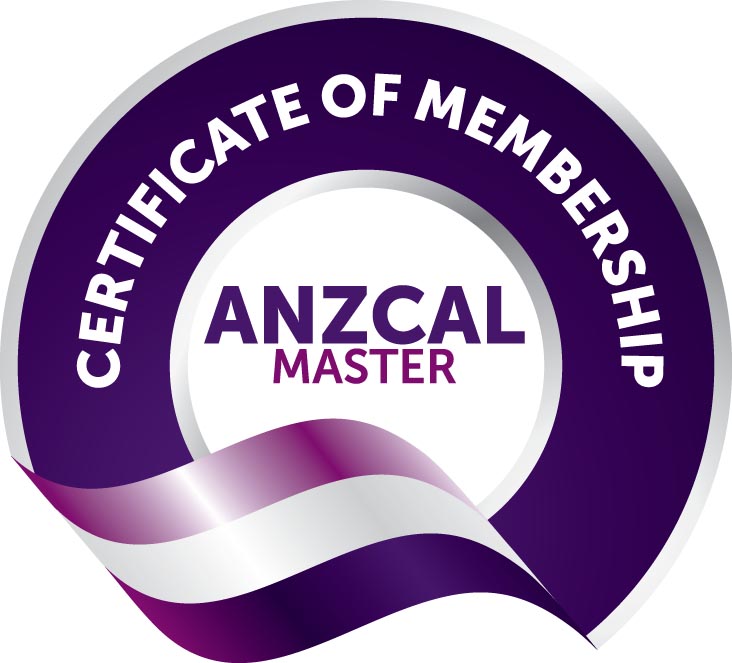The journey of a person through the lifespan is an intricate tapestry of experiences, challenges and growth, which I see as a continuous process marked by the evolution of intellectual change, the development of wisdom and the inescapable march of the change and growth process itself. These key ideas are deeply intertwined and reflect my worldview that values (a) lifelong learning; (b) embraces change as a positive force and (c) perceives the development of wisdom as a product of our own ability to navigate the currents of change and transformation.
When a recent opportunity presented itself for my own ongoing personal growth and learning, it had me reflecting on these key capacities that occur over a human lifespan. I decided to evaluate these implicit beliefs I hold, and in my search for meaning, I naturally consulted with philosophers, poets, writers and theorists who have said it all before, because as the Book of Ecclesiastes tells us “there is no new thing under the Sun”.
Key Idea 1: The River Cannot Go Back
Khalil Gilbran’s poem ‘The River Cannot Go Back’, elicited a range of emotions so deeply insightful, there are no words I could use to describe these perceptions because they belong in the realm of intuitive knowing.
It is said that before entering the sea
a river trembles with fear.
She looks back at the path she has travelled,
from the peaks of the mountains,
the long winding road crossing forests and villages.
And in front of her,
she sees an ocean so vast,
that to enter there seems nothing more than to disappear forever.
But there is no other way.
The river cannot go back.
Nobody can go back.
To go back is impossible in existence.
The river needs to take the risk
of entering the ocean
because only then will fear disappear,
because that is where the river will know
it is not about disappearing into the ocean,
but of becoming the ocean.
This poem is so powerful because the concept of change-and-time is often a difficult one to comprehend. Likening the progression of change and time to the movement of a river is easier for us to make sense of.
Many poets, writers and philosophers have made this connection, like Heraclitus who said ‘no man ever steps in the same river twice, because it is not the same river and he’s not the same man’.
Heraclitus’ philosophy underscores the inevitability of change. We can stand motionless alongside the edge of the same river bank, but the water that was in front of us a few seconds ago, has already moved downstream and has been replaced. It might look the same, but it is not, so when Heraclitus said ‘change is the only constant’, he is reminding us to accept that change is inevitable and that the wisest response to change is to adapt and grow; while Kalil Gibran’s poem reminds us of the need for courage in the face of change, to face the fear and do it anyway. These sentiments are echoed in a prayer that I repeatedly find comfort in:
May I be granted serenity, courage and wisdom.
Serenity to accept the things I cannot change
Courage to change the things I can
and Wisdom to know the difference.
These intuitive insights gleaned from poets and philosophers, led me to look at what the theorists have to say about change from a human development perspective.
Key idea 2: The evolution of intellectual change over a person’s lifetime
The dynamic nature of human cognition is of significance here, and this idea finds resonance with the works of renowned philosophers and theorists such as Jean Piaget and Lev Vygotsky.
Piaget’s theory of cognitive development posits that intellectual growth occurs through stages, reflecting a person’s evolving ability to process information, reason and solve problems. Vygotsky, on the other hand, emphasized the role of social interactions and cultural context in shaping intellectual development.
Both theorists underscore the idea that intellectual change is not static but progresses throughout one’s life, mirroring my implicit belief in the perpetual nature of learning and development.
Key idea 3: The development of wisdom across the lifespan
This is a quality often associated with the accumulation of knowledge, discernment and sound judgment and resonates with the works of developmental psychologists like Erik Erikson.
Erikson’s psychosocial theory emphasizes the importance of psychosocial crises and challenges across the lifespan. He proposed that wisdom and integrity emerge as the pinnacle of development in late adulthood, suggesting that wisdom is a byproduct of successfully navigating life’s challenges and changes. Wisdom, according to this perspective, is not a fixed trait but a dynamic outcome of a lifelong journey.
Key idea 4: Change across the lifespan is positive, aspirational and desirable
My implicit belief is that change is positive. It is to be desired and embraced. This view finds alignment with the humanistic psychology of Abraham Maslow.
Maslow’s hierarchy of needs highlights the notion of self-actualization, where individuals continuously strive for personal growth and self-improvement. Embracing change and aspiring towards self-actualization are central themes in Maslow’s framework, emphasizing the intrinsic motivation of individuals to reach their full potential.
How to embrace change and personal growth
The nature of change is ever-present and inevitable. We can fight it, but it seems a pointless endeavour, simply because time and change is inevitable and unstoppable. The next obvious approach is acceptance, as alluded to in the words of the Serenity Prayer. Life is a journey of embracing change and instead of resisting change, we can use change itself as a catalyst for personal development.
Heraclitus offered these valuable practical life lessons that resonate across time and are particularly relevant in our ever-evolving world:
-
Embrace Change and Impermanence:
Everything is in a constant state of flux, and nothing remains the same. In our lives, this means that we should expect and accept change as an integral part of our existence. Whether it’s personal circumstances, relationships or external events; change is bound to happen.
This notion encourages individuals to accept change as an inherent part of life rather than resisting it. Embracing change allows for personal growth and adaptability to new circumstances.
-
Adaptability and Resilience:
Cultivating the dispositions of adaptability and resilience are essential in the face of change. Since change is unavoidable, individuals who can adapt and navigate through life’s ups and downs are better equipped to thrive. This teaches us to be flexible in our thinking and actions, helping us cope with unforeseen challenges and opportunities.
When we recognize that change is inevitable, we can develop the ability to adjust to new situations, overcome challenges and bounce back from setbacks.
-
Flow with the River of Life:
The metaphor of a river insightfully describes life’s constant change. To navigate this river successfully, we must learn to flow with it rather than swim against the current. This metaphor encourages a more effortless and harmonious approach to life.
-
Seek Balance and Harmony:
Now more than ever, we need to find balance and harmony in the midst of a dynamic and ever-changing world. This involves finding equilibrium in our thoughts, actions and relationships. Balance allows us to navigate change more gracefully and maintain a sense of well-being and this idea suggests that individuals should strive for equilibrium and inner peace, even in the face of external turbulence.
-
Appreciate Diversity and Unity:
The unity of opposites suggests that opposing forces are interconnected and necessary for balance. In life, this concept reminds us that challenges and difficulties are often intertwined with opportunities and growth. Embracing the dualities of life can lead to a more holistic understanding of our experiences. Pay attention to the interconnectedness of opposites and how they complement each other. In practical terms, this idea encourages us to appreciate the diversity of experiences and perspectives in life, recognizing that they contribute to a richer and more holistic understanding of the world.
-
Personal Growth and Self-Discovery:
Change and self-discovery are intertwined. As we adapt to change and embrace it as an opportunity for growth, we gain a deeper understanding of ourselves and our potential. Rather than resisting change, we must learn to embrace it. Change is not something to be feared but a force that propels us forward. It opens the door to growth, learning and new experiences.
-
Letting Go of Attachments:
Since everything is in a state of constant change, we should not become overly attached to material possessions or fleeting experiences. Holding onto fixed beliefs and attachments could lead to suffering. To find harmony in a world of change, let go of rigid expectations and desires. This idea promotes a sense of detachment and freedom from the transitory nature of the world. Practically, this can mean cultivating a mindset of detachment and focusing on the present moment rather than dwelling on the past or worrying about the future.
-
Mindful Observation:
To fully grasp the ever-changing nature of reality it is necessary to engage in mindful observation and introspection. By paying close attention to the interplay between the world around us, our own unique experiences, and our inner thoughts and emotions; we can gain insights into the nature of change and its effects on our lives. By paying close attention to the ever-changing nature of things, we can gain insights into the underlying order and wisdom of the universe.
-
Continuous Learning:
Learning is a lifelong journey. As the world evolves, so should our knowledge and understanding continue to transform us. Embracing change and transformation means being open to new ideas and perspectives in order to harness the positive potential for change through intellectual and personal growth and development.
In essence, Heraclitus’ teachings emphasize the importance of adaptability, resilience and a philosophical outlook on life. By internalizing these principles, individuals can navigate the challenges of an ever-changing world with greater ease; find meaning in impermanence; and cultivate a deeper sense of wisdom and self-awareness. The evolution of intellectual change, the development of wisdom, and the process of change and growth over a person’s lifetime are interconnected themes that resonate with a wide array of philosophical and psychological perspectives. From Piaget and Vygotsky’s insights into cognitive development to Erikson’s psychosocial theory and Maslow’s humanistic psychology, these ideas find validation in the works of influential thinkers who have explored the profound nature of human existence.
Embracing these ideas, echoes the timeless belief that life is indeed a continuous journey of learning, growth and wisdom, driven by the ever-present force of change.
Go well, flow well and stay well on your journey of embracing change and personal growth.
© Gaynor Clarke, September 2023
Gaynor Clarke
B.Ed (Teaching), Cert Tertiary Teaching, PGDip Ed, MEd Leadership
Reach. Teach. Lead.
Reach Education Ltd
Teacher Leadership Mentoring and Life Coaching. Personal and Professional Development.
Gaynor is a teacher educator and mentor facilitating personal & professional leadership wellbeing outcomes for teachers.
If you are an early childhood teacher or leader looking to enhance your leadership skills, I would love to work with you. As a leadership mentor and coach, I specialize in helping early childhood educators develop their leadership potential and make a positive impact for the ākonga they serve. If you are interested in learning more about my leadership mentoring services, please visit my website or contact me directly to schedule a consultation. I would love to work with you!








Leave a Comment
You must be logged in to post a comment.